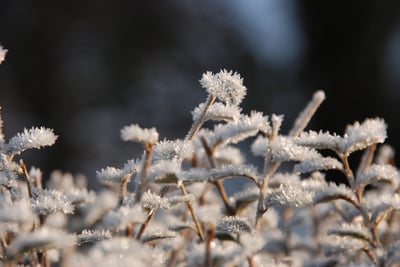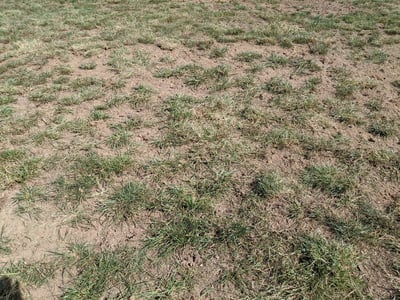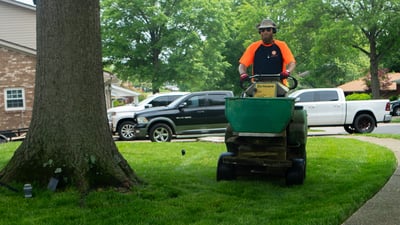

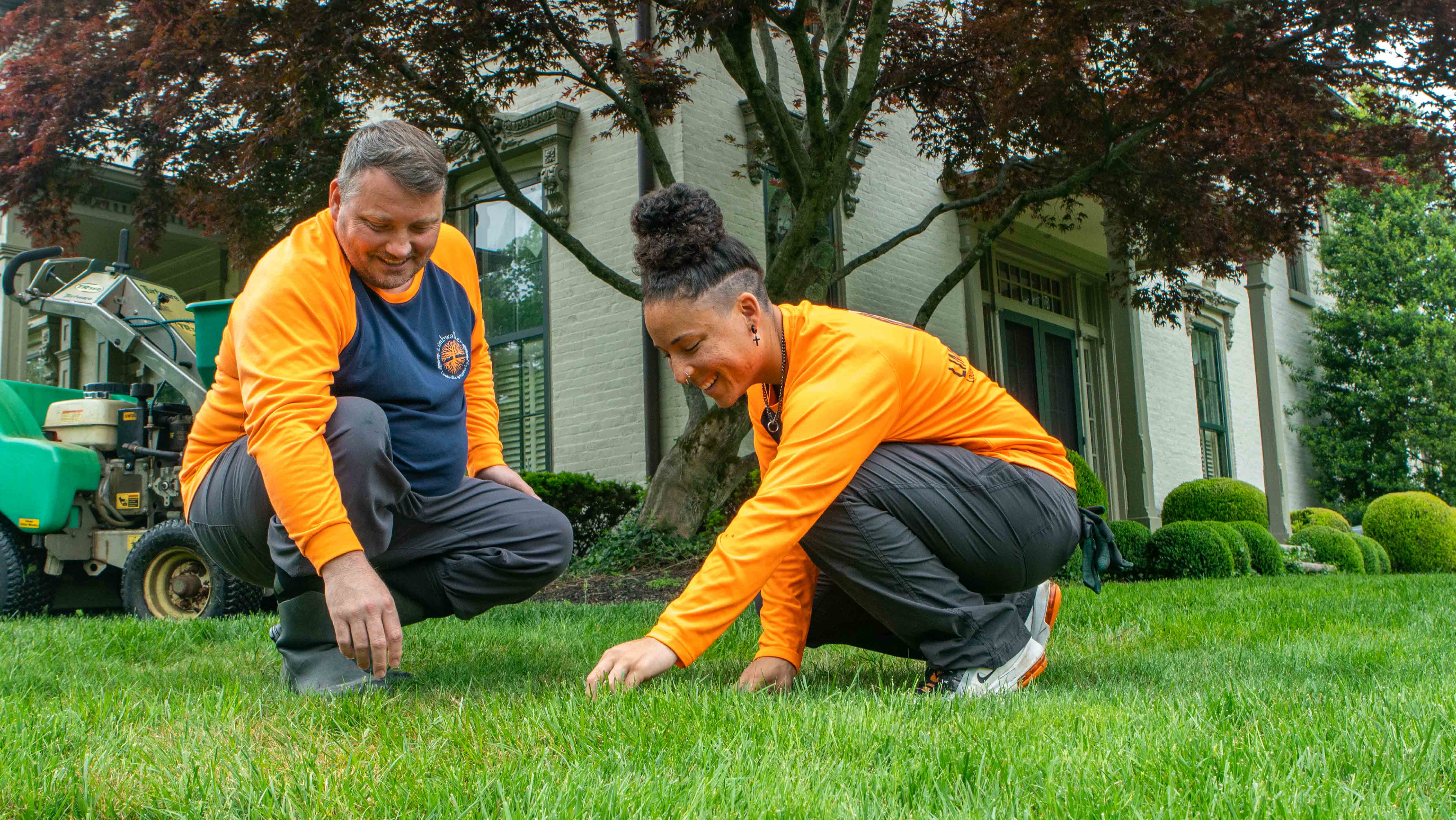
You can’t separate having a healthy lawn from having healthy soil. It’s the soil that your grass is growing in that will affect your lawn’s overall health more than any other factor. Soil health problems can ultimately hold your lawn back from being the best it can be.
That’s why we’re talking about understanding soil in Kentucky.
Knowing what’s going on beneath the surface can have a huge impact on your lawn’s success. While it’s easy to focus on what’s going on above ground, you simply can’t overlook the health of your soil. Issues with soil structure, pH, or nutrient balance can wreak havoc on your turf.

Jump to:
There are all different types of soil and depending on what’s found in your yard, it can affect how grass grows there.
While three main soil types include clay, sandy, and sandy loam, predominantly, we find that clay soil is the primary soil type of the Louisville region.
Sandy soils in Kentucky are predominantly found in the Ohio River Valley. While there might be some properties with sandy or sandy loam soils here in Louisville, it’s not nearly as common as clay soil.
Clay soils are found widely throughout Kentucky, but heavily in the Louisville area. This is the result of residual clays formed by the weathering of limestone and shale that was used for building. It’s also the result of sediment accumulation over time, formed from ancient lakes, ponds, or rivers.
While clay soil can hold nutrients and water well, it also gets compacted easily and can become waterlogged as a result. We’ll talk more about how clay soil affects lawn health in the next section.
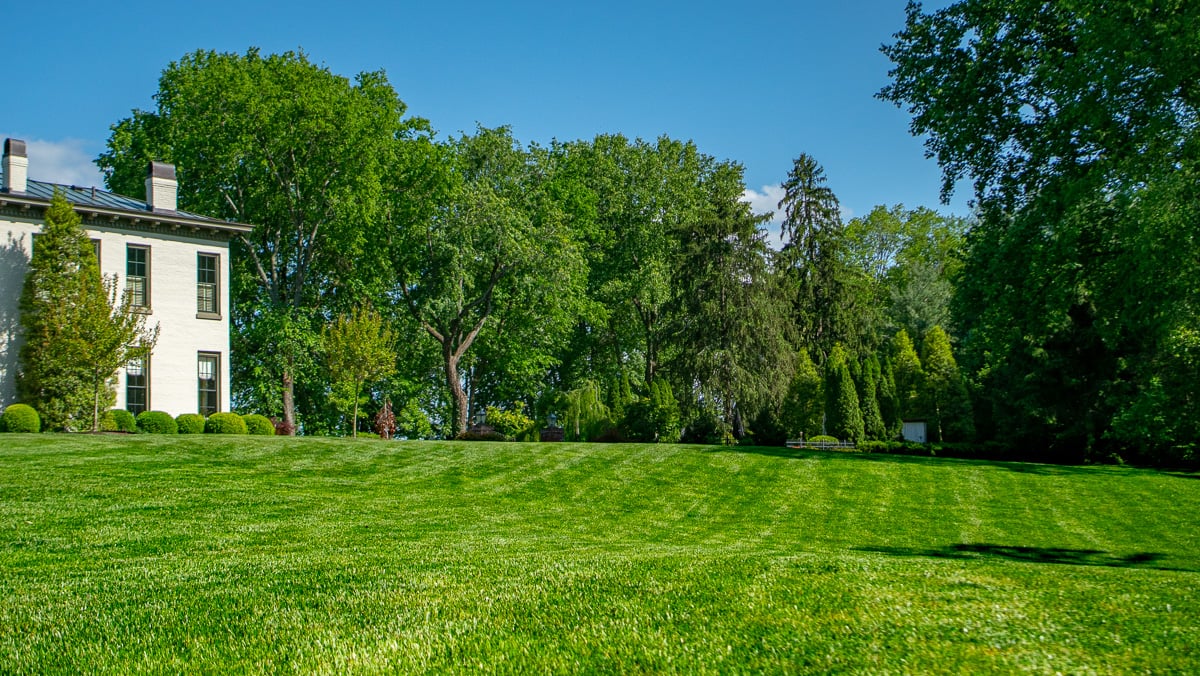
Healthy soil is the foundation for a healthy lawn. But how exactly does soil impact grass health? We’ll explain…

The soil’s impact on grass cannot be ignored. Poor soil health can lead to a number of problems with your lawn.
Here are just some potential problems caused by soil issues.

There are several ways that you can focus on improving a lawn with soil improvements. It means addressing soil health from more than one angle.
Aerate the lawn to alleviate compaction
Due to our predominantly clay soils, we definitely recommend lawn aeration to help break up compaction. Professional lawn aeration can help your lawn breathe again.
Lawn aeration helps to improve your lawn’s soil in two ways:

Suburban soil becomes depleted of vital nutrients easily. You’ll want to make sure that you are investing in professional fertilization to help restore those nutrients.
Lawns can benefit from fertilization treatments throughout the active growing season. The key is that different amounts and types of fertilizer are applied at different times to meet your lawn’s needs in that season.

Another way that you can improve lawn soil health is by investing in a lawn care program that uses biostimulants which help add valuable microorganisms back into the soil. As we mentioned, microorganisms help the grass plants digest nutrients and also naturally build strength against pests, diseases, and even environmental stressors.
There’s no doubt that soil health and grass health are interconnected. There’s no way around this. Without healthy soil, your grass will never perform its best.
Fortunately, there are steps that you can take to improve your soil health and these are made much easier when you partner with a pro.
Hopefully, after reading this article you have a better understanding of soil in Kentucky and why it’s so important.
It can all be a bit overwhelming…but it doesn’t have to be!
That’s because a lawn care professional can help. A lawn care pro will have the best services for soil health issues including fertilization, biostimulants, and lawn aeration. They’ll also be able to make expert diagnoses about any other problems your lawn might be experiencing and help you implement the best solutions.
The truth is, not all lawn care providers care about improving the lawn with a soil health focus. You want to make sure that you’re working with a lawn care service that understands just how imperative it is to promote healthy soil.
When you make a wise choice in lawn care providers, you’re finally able to let go of the stress and worries associated with maintaining a beautiful lawn and simply start spending more time enjoying it. That should leave you with valuable peace of mind.
Are you ready to have a thick and healthy lawn that’s getting everything it needs at your Louisville, KY home? Get in touch with us to get a quote for our lawn care programs, which include three lawn care pricing options.


